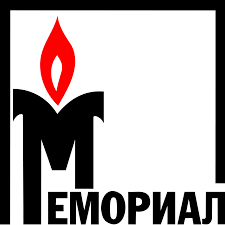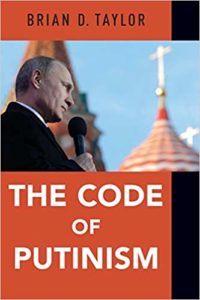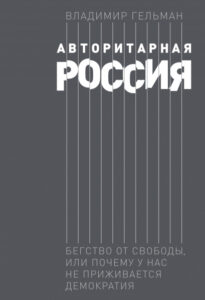The coming year in Russian politics is likely to be marked by continued repression of the remnants of political opposition and independent media, experts told The Moscow Times.
After a year in which the radical “non-systemic” opposition around jailed activist Alexei Navalny was all but destroyed, and a host of independent media outlets were declared “foreign agents” as Russia took a rapid authoritarian turn, analysts agree that more is to come.
“The regime will remain authoritarian and continue stamping out civil society,” said Andrei Kolesnikov, an analyst at the Carnegie Moscow Center think tank. “At this point, it can’t stop itself.”
 There is a demonstrable rationale for the Kremlin’s suppression of the Memorial Human Rights Center (above), Russia’s most prominent human rights group, according to a leading analyst.
There is a demonstrable rationale for the Kremlin’s suppression of the Memorial Human Rights Center (above), Russia’s most prominent human rights group, according to a leading analyst.
President Putin’s legitimacy rests increasingly on a nostalgic narrative, eliding modern Russia with the Soviet Union’s finest hour, its heroic, single-handed battle to free the world of the Nazi plague, notes Edward Lucas of the Center for European Policy Analysis. An obvious weak spot in this is Stalin’s record, which undermines any attempt to depict him as a hero, genius or liberator. Restoring the taboo about Stalin’s crimes thus safeguards not only Russian self-esteem but legitimizes Putin’s regime, he writes for The (London) Times:
The line is simple. Stalin fought the Nazis. Critics of Stalin must therefore be Nazi sympathisers. Put like this the syllogistic logic sounds ridiculous. But it is exactly the charge against Memorial. “By cashing in on the subject of political reprisals of the 20th century, Memorial is mendaciously portraying the USSR as a terrorist state and whitewashing and vindicating Nazi criminals,” Alexei Zhafyarov, part of the prosecution team, said. “Why should we, the descendants of the victors, have to see the vindication of traitors? [Memorial] makes us repent of the Soviet past, instead of remembering its glorious history.”
In truth, the history is chequered, to put it mildly, adds Lucas. Communist and Nazi totalitarianism overlapped. Stalin and Hitler were allies before they were foes.
Observers in Russia see the closure of Memorial as a deliberate move towards Chinese levels of censorship and control. In both Russia and China, moves to shut down historical debate go hand in hand with an intensification of present-day repression, The FT’s Gideon Rachman writes. To complete the circle of repression, domestic critics of the Putin and Xi governments are routinely accused of working for hostile foreign powers — just as opponents of Stalin and Mao were, he adds (below).
 From the start of 2021, wrote Vladimir Frolov, a former Russian diplomat in Washington, the Kremlin has adopted a new strategy toward the West, which he dubbed, ironically or not, “Détente 2.0,” notes Serge Schmemann. Writing on the Russian site Colta.ru, Mr. Frolov said the goals of the new policy were to stabilize relations with the West on conditions favorable to Russia — the neutrality of Ukraine was a major objective — and to ensure that Moscow has a geopolitical status equal to that of the United States and the European Union in international affairs, he writes for The New York Times:
From the start of 2021, wrote Vladimir Frolov, a former Russian diplomat in Washington, the Kremlin has adopted a new strategy toward the West, which he dubbed, ironically or not, “Détente 2.0,” notes Serge Schmemann. Writing on the Russian site Colta.ru, Mr. Frolov said the goals of the new policy were to stabilize relations with the West on conditions favorable to Russia — the neutrality of Ukraine was a major objective — and to ensure that Moscow has a geopolitical status equal to that of the United States and the European Union in international affairs, he writes for The New York Times:
Behind the change, Mr. Frolov argued, was Mr. Putin’s conviction that efforts to draw closer to the West and to accept Western values of human rights served only to undermine Russian statehood. Moreover, the Kremlin believed that in contrast to 30 years ago, the United States and its allies were now in decline and anxious to pivot to China, and therefore willing to pay a price for détente with Russia. “Our strategy is that Russia is always right,” was the new watchword, Mr. Frolov wrote.
While Putin feels strong, he views his Western counterparts as being weak. In his eyes, Europeans lack the political resolve to assert their power consistently and guided by their strategic interests, writes Stefanie Babst, a former Deputy NATO Assistant Secretary for Public Diplomacy and Head of the Secretary General‘s Strategic Foresight Team. On the other side of the Atlantic, things don’t look much different, she adds. US President Joe Biden wants to focus on the growing strategic competition with China and has no interest in opening a military arena in Europe. Against this backdrop, Putin has been dragging the West along for weeks.
Putin’s interest [in destabilizing Ukraine] is also ideological, says Anne Applebaum, the author of Twilight of Democracy: The Seductive Lure of Authoritarianism. Every year, Ukraine becomes more confident, more united, more European. Every year, Ukraine inches a little bit closer to democracy and prosperity. What if it gets there? she writes for The Atlantic.
The idea of a flourishing, democratic Ukraine right on Russia’s doorstep is, for Putin, personally intolerable. Just as Ukrainian independence once seemed to Stalin to be a dire threat to his Bolshevik regime, so too would a successful modern Ukraine pose too great a challenge to Putin’s autocratic, sclerotic, kleptocratic, and ever more brutal political system. What if Russians start envying their Ukrainian neighbors? What if they decide they want a system like that too? asks Applebaum, a National Endowment for Democracy (NED) board member.

Gelman’s Authoritarian Russia
NATO cannot negotiate down the barrel of a gun, says former NATO secretary-general Anders Fogh Rasmussen. And if we back down now, that signal will be heard loud and clear by both the democracies that rely on us, and the autocrats who lament and fear our freedom.
Even as the state widens the net of repression, other challenges are set to influence Russia’s politics in the year ahead, ranging from economic stagnation through the continuing pandemic to climate change, The Moscow Times adds.
“It’s impossible to say what is going to happen, or whether new unrest will break out,” said Carnegie’s Kolesnikov. “But it’s going to be harder for the state to buy the population’s loyalty.”
Today on the University of Texas’s This is Democracy podcast, Catholic University’s Dr. Michael Kimmage talks about the current crisis between Russia and the Ukraine and how it will influence US politics.
Putin’s attempt to control the past follows the Xi model https://t.co/eYzPeygdug
— Democracy Digest (@demdigest) January 3, 2022







